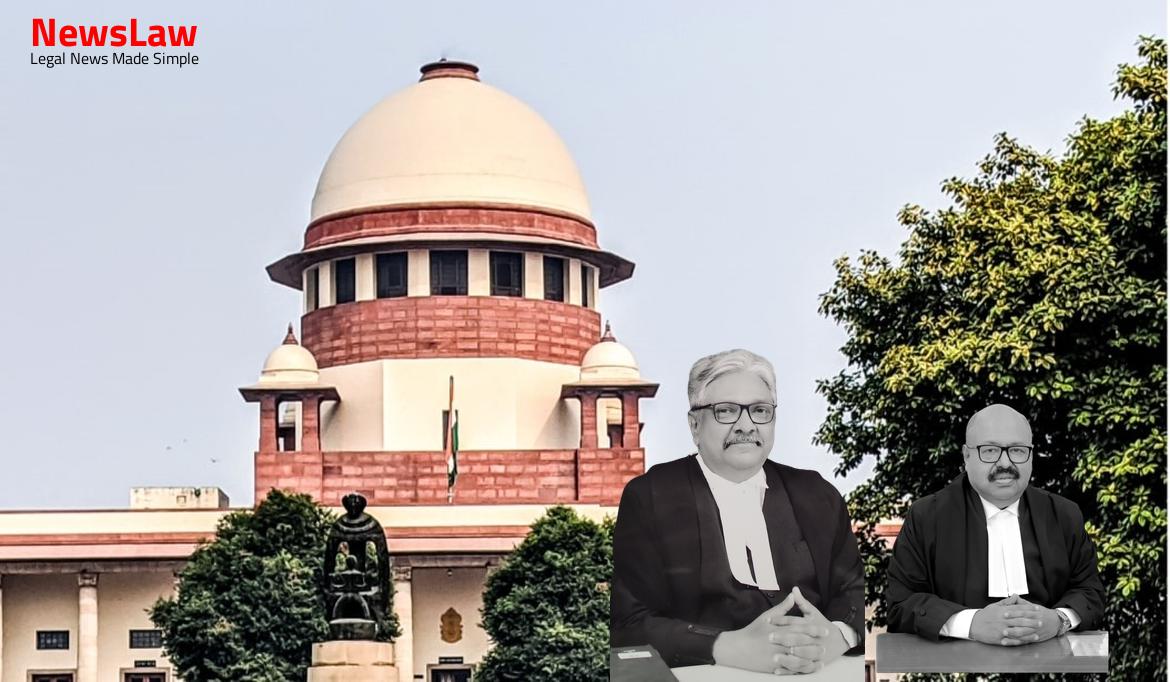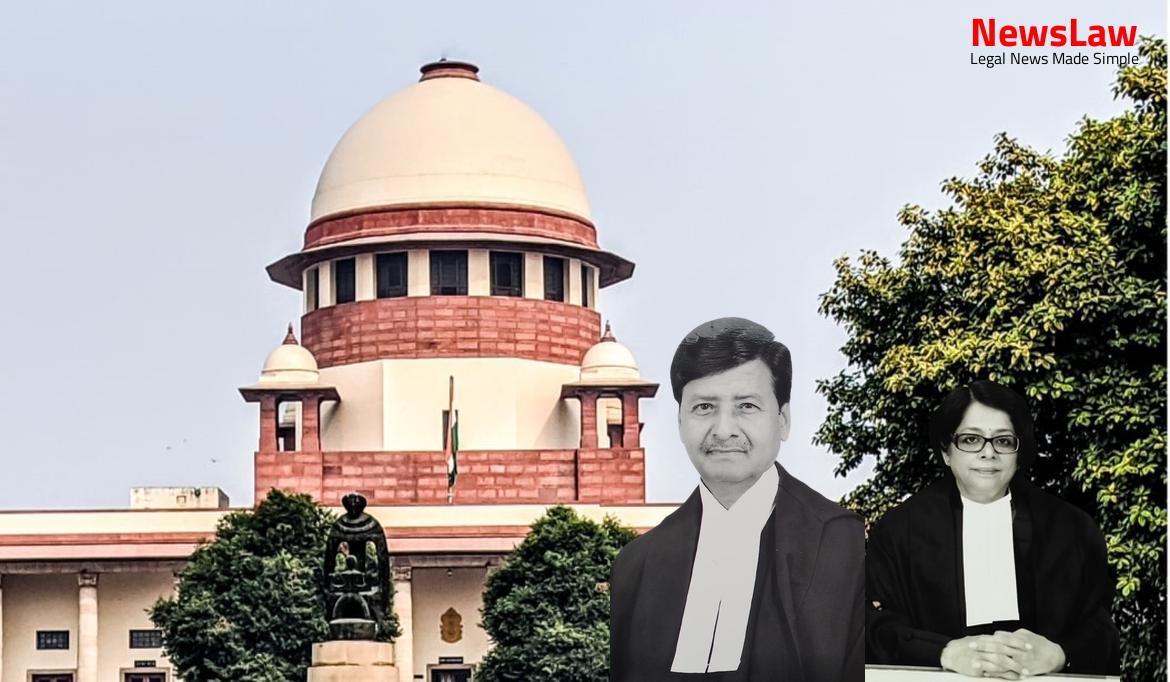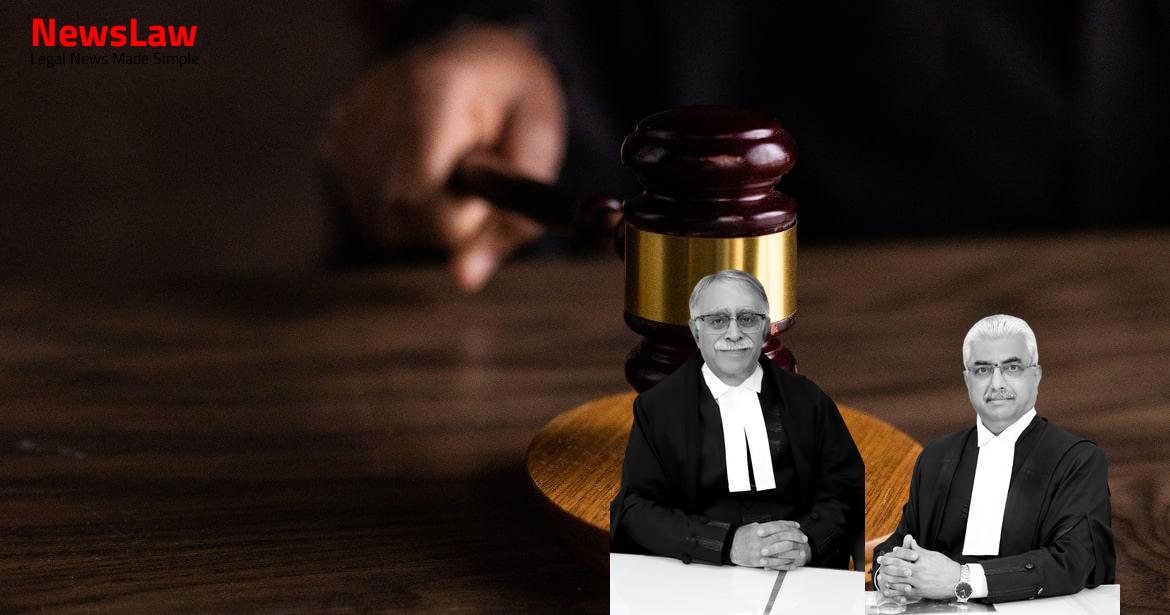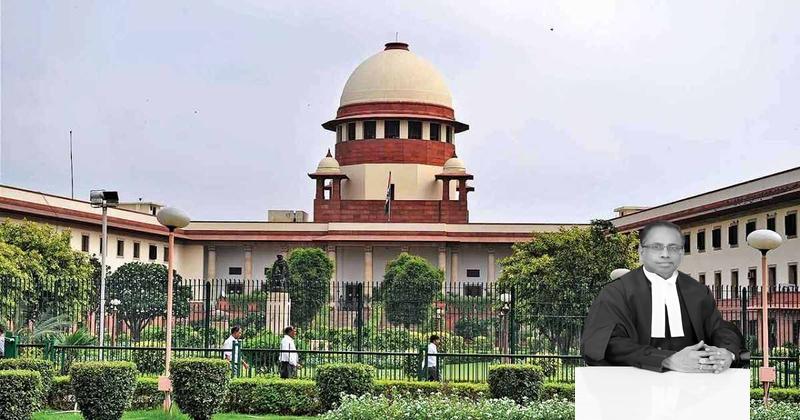In a recent legal development, a High Court’s decision in an anticipatory bail case raised questions of judicial overreach and impact on third parties. The focus was not just on the applicant’s eligibility for bail, but on the Court’s authority to issue significant directives without involving all parties. Stay tuned to delve into the nuances of legal analysis in this intriguing case.
Facts
- The second respondent filed an application under Section 438 of the Cr.P.C.
- The application was seeking anticipatory bail in connection with Pirbahore P.S. Case No 174 of 2021.
- The case was registered for offences under Sections 406, 420, 467, and 468 of the Indian Penal Code.
- The High Court allowed the application under Section 438 Cr.P.C.
Also Read: Legal Analysis of Assignment and Ratification in Property Law
Arguments
- The appellant approached the Court with a petition under Article 136 of the Constitution of India.
- The direction given by the High Court to cancel the license/authorization of the agent granted to Kanchan Kumari is the subject matter of challenge before this Court.
- Learned counsel for the appellant argues that the High Court erred in passing the said direction.
Also Read: Interpretation of Custody in Contempt of Court Case
Analysis
- The decision amounts to blacklisting the appellant for a lifetime without issuing any show cause.
- The appellant’s livelihood has been adversely affected by this decision.
- The appellant, who was not a party before the High Court, has been prejudiced by the direction.
- The case before the Court was primarily about whether the applicant qualified for anticipatory bail.
- The High Court did not provide any show cause before issuing the said directions.
- The appellant questions the competence of the Court to issue adverse orders when the appellant is not a party and without issuing any notice.
- The matter originated from an application for anticipatory bail under Section 438 Cr.P.C.
- Reference is made to the case of Sumit Mehta v. State of N.C.T. of Delhi (2013) 15 SCC 570.
- It is emphasized that the conditions imposed by the Court must be appropriate, relevant, and reasonable to the case at hand.
- The court must only consider whether the applicant has made a case for anticipatory bail under Section 438 Cr.P.C.
- The High Court overstepped by issuing a peremptory direction affecting a third party without issuing any notice to the appellant.
- The peremptory direction negatively impacts the appellant’s livelihood and is unjustified.
- The appellant should succeed in this case.
Also Read: Judicial Interpretation on Tribunal Powers and Back Wages
Decision
- The impugned order is modified by vacating the specific direction mentioned
- The appeal is allowed as per the signed order
- Pending application has been disposed of
Case Title: KANCHAN KUMARI Vs. THE STATE OF BIHAR (2022 INSC 746)
Case Number: Crl.A. No.-001031-001031 / 2022



